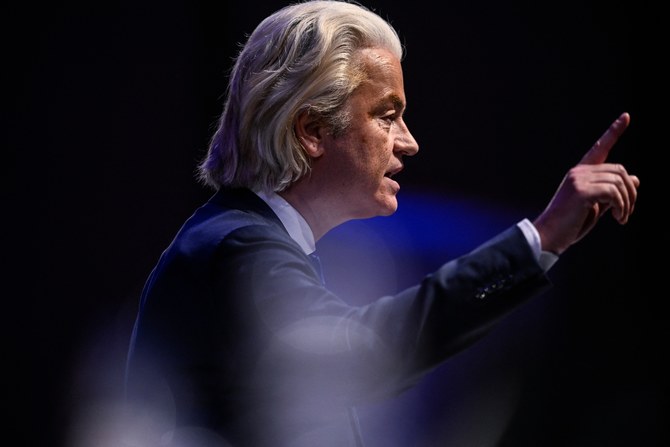
Disease the top risk to global security and livelihoods over the next two years
‘The immediate human and economic cost of COVID-19 is severe’
DUBAI: The risk from infectious diseases remains a “clear and present danger” even as vaccines are being rolled out to counter the effects of the coronavirus disease (COVID-19) pandemic, according to the World Economic Forum (WEF).
In its latest annual Global Risk Report, most respondents said that disease was the top risk to global security and livelihoods over the next two years.
In the medium to long term, they were worried about financial crises in the shape of asset bubbles arising from the pandemic economic crisis, and over the next 10 years the “existential threat” of weapons of mass destruction was the biggest fear.
In the gloomiest risk report for many years, the WEF said: “The immediate human and economic cost of COVID-19 is severe. It threatens to scale back years of progress on reducing poverty and inequality and to further weaken social cohesion and global cooperation.
“Job losses, a widening digital divide, disrupted social interactions, and abrupt shifts in markets could lead to dire consequences and lost opportunities for large parts of the global population.
“The ramifications — in the form of social unrest, political fragmentation, and geopolitical tensions — will shape the effectiveness of our responses to the other key threats of the next decade; cyberattacks, weapons of mass destruction and, most notably, climate change,” it added.
Environmental issues were also a key concern of respondents to the risk survey, with the likelihood of extreme weather, climate change failure, and human environmental damage the top three risks rated most likely.
Klaus Schwab, the founder and executive chairman of the WEF, and Saadia Zahidi, its managing director, said that the WEF had been warning of the danger of pandemics since 2006.
“In 2020, the risk of a global pandemic became reality. As governments, businesses, and societies survey the damage inflicted over the last year, strengthening strategic foresight is now more important than ever.
“In some cases, disparities in health outcomes, technology, or workforce opportunities are the direct result of the dynamics the pandemic created. In others, already present societal divisions have widened, straining weak safety nets and economic structures beyond capacity,” they added.
Some countries in the Middle East have handled the pandemic crisis relatively well, the WEF said. “Capacities and responses varied greatly but relatively young populations may have spared the region from higher death tolls; however, data in some locations are uncertain.
“Some nations with advanced medical systems and regimes able to enforce lockdowns and other social restrictions along with border controls have managed successive waves of infections.
“Other, poorer nations, and those that are fragile and in conflict situations, however, are suffering exacerbated economic and humanitarian challenges,” the report said.
The WEF highlighted the problems of young people, whom it labelled “pandemials.” It said: “The world’s youth have faced exceptional pressures in the past decade and are particularly vulnerable to missing out altogether on the opportunities of the next.”












